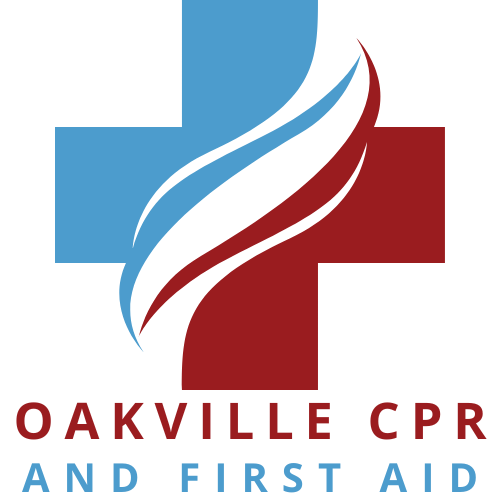We Only Use ECO-Friendly Medical Gloves. What’s that and Why? Read to Find Out!
Let’s start with a big scary statistic:
Did you know that over 100 BILLION pairs of medical gloves are thrown away each YEAR?
Wow! That amount is staggering - and sad for our planet :(
The Environmental Impact of Disposable Medical Gloves
Medical gloves - an essential part of the medical field - are commonly used by medical professionals and individuals alike to protect against germs, bacteria, and other types of health hazards.
Disposable medical gloves are designed as single use items intended for one time use only. However, the consequence of their disposable nature is that these gloves end up in landfills where they can take centuries to decompose.
According to estimates, each year over 100 billion pairs are thrown away worldwide. As a result, the amount of nitrile-based materials in landfills is quickly accumulating - creating an environmental hazard that has yet to be seriously addressed.
How Eco Best Technology Can Reduce Waste
Nitrile gloves are non-biodegradable, meaning that they don’t break down naturally and require more than 100 years for complete decomposition. Through their accumulation in landfills, these materials can lead to water pollution and toxic runoff which can seep into ecosystems and harm wildlife.
Thankfully, there is a solution: Eco Best Technology (EBT) gloves offer uncompromised protection and performance while still caring for the environment.
EBT gloves are biodegradable nitrile gloves with special additives that cause them to decompose within only 1-5 years! Plus, decomposition occurs even when disposed of in active landfills - drastically decreasing their environmental impact as opposed to non-biodegradable options.
At Oakville CPR & First Aid, we use only SHOWA biodegradable nitrile gloves with Eco Best Technology (EBT). These Eco-Friendly medical gloves help preserve our planet by reducing the amount of waste created from disposable medical glove products each year.
We believe it’s important for us all do our part in protecting our community and environment – no matter how small – so that we can all enjoy a healthier future!
The Surprising Additional Benefits of Using Biodegradable Nitrile Gloves for Healthcare Professionals
For healthcare professionals, the use of biodegradable nitrile gloves offers numerous benefits that you would probably never think about!
Here are the top 3 benefits of biodegradable nitrile gloves in no particular order:
Superior Protection
Beyond their environmental friendliness, these gloves provide a superior level of protection from germs, bacteria, and other potential hazards that could otherwise cause health issues.Comfort, Flexibility, & Sensitivity
Unlike traditional nitrile gloves, biodegradable versions are more comfortable to wear for longer periods of time. This is due to their improved flexibility and tactile sensitivity - allowing wearers to perform tasks with greater accuracy while still protecting against exposure.Better Grip & Dexterity
Additionally, they are thicker than regular disposable gloves yet remain lightly textured - offering superior grip and dexterity for handling delicate objects or medical instruments.
Overall, biodegradable nitrile gloves offer an improved level of protection along with enhanced comfort and dexterity compared to traditional disposable nitrile gloves. By choosing eco-friendly options like those provided by Oakville CPR & First Aid with Eco Best Technology (EBT), healthcare professionals can help protect our environment while still providing the highest quality care.
A Closer Look at the Regulatory Framework in Ontario, Canada Around Disposable Medical Gloves
Ontario, Canada has a strong regulatory framework in place to ensure the safe and effective use of disposable medical gloves.
The College of Physicians and Surgeons of Ontario (CPSO) requires that medical practitioners wear single-use, disposable gloves when providing care to patients. This regulation was introduced to reduce the risk of contamination and infection transmission within healthcare settings.
The Ontario Ministry of Health & Long Term Care also offers guidelines for the effective disposal of used medical gloves. According to these regulations, used medical gloves must be placed in an approved biohazard bag or container before being discarded in a secure receptacle. In addition, healthcare providers are expected to have sufficient supplies on hand for proper glove disposal during a procedure or treatment.
The Ontario Occupational Health and Safety Act (OHSA) states that employers must provide employees with appropriate protective equipment such as safety glasses, face shields, coveralls and rubber boots if they are required for certain tasks. The OHSA regulations require employers to take reasonable steps to protect workers from exposure to hazardous substances such as blood, body fluids or chemicals by providing them with protective clothing including disposable medical gloves.
The Ontario Ministry of Labour is responsible for ensuring that employers comply with OHSA regulations relating to safety equipment and personal protective equipment such as disposable medical gloves. Inspectors from the ministry may issue compliance orders or prosecute non-compliant employers for failing to ensure worker safety in the workplace.
Our Commitment to Our Community & Our Planet
At Oakville CPR & First Aid, we strive to make a difference with our ECO BEST Gloves. By choosing only SHOWA’s innovative eco-friendly medical gloves with Eco Best Technology (EBT), we can help ensure that fewer pairs of gloves end up in landfills and damaging the environment.
Together, let’s work towards protecting our community and preserving our planet! To learn more about EBT and why it’s an important part of being eco-conscious, explore further here on SHOWA’s website. We look forward to helping you make a difference! Thank you for being part of the solution.
Welcome aboard! Let's save lives - and our planet - together! :)
And for that “saving lives” part… if you live in the Halton Region and haven’t yet gotten First Aid & CPR Certified - we can help with that!
